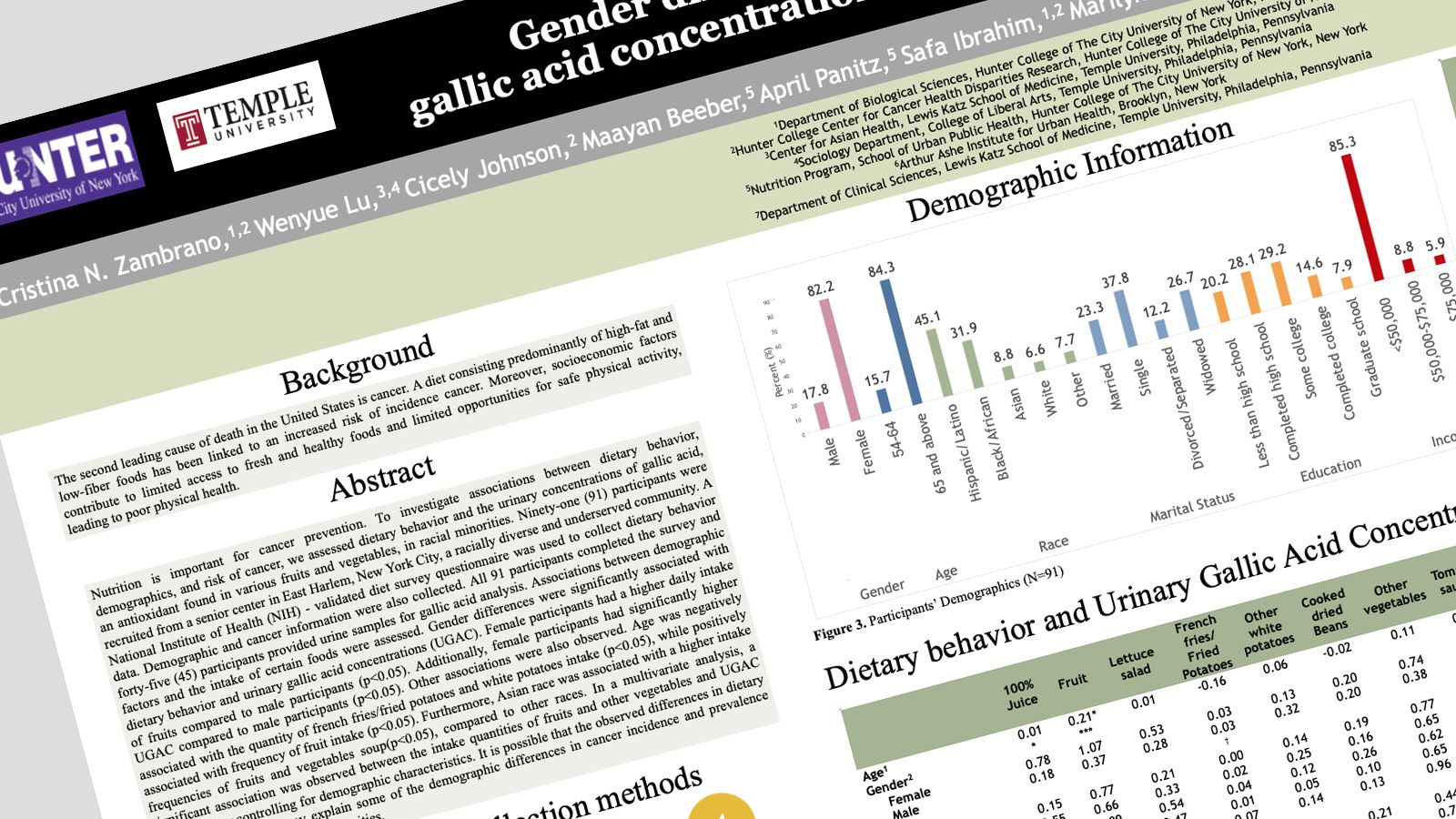
Gender Differences in Dietary Behavior and Urinary Gallic Acid Concentrations in Racial Minorities in New York City
| Name | Cristina Zambrano |
| Institution | Hunter College |
| Research Field | Clinical Cancer Research |
| Role at Institution | Research Associate |
| Presenter(s) | Cristina Zambrano |
